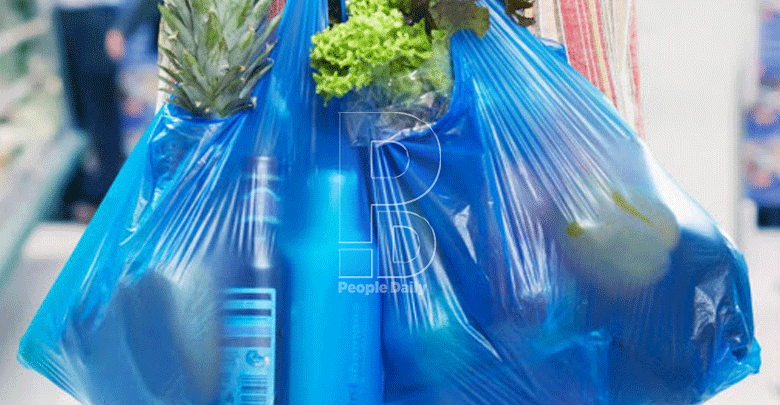EAC should harmonize single-use plastic policies

By Daniel Wanjuki
Single-Use plastic pollution are not limited to the borders of a country. They present harmful effects that extend beyond the borders of the originator of the pollution.
That is why development of policy frameworks for Pollution Control and Waste Management is a priority for the Environment and Natural Resources Sector of the East African Community (EAC) Secretariat.
Data reveals that 90 per cent of the energy sources in households in the EAC region is from traditional technologies that contribute to air pollution, negatively impacting human health and the environment.
Here in Kenya, a casual visit to the dumpsite in any part of the country will leave you wondering whether the country really banned Single-Use plastic five years ago. The story of the single use plastic is that it is good on paper but non-existent on the ground.
There is complete lack of commitment to reduce plastic packaging such as in the food industry where bread makers still consider their product not subject to plastic reduction yet other companies baking bread have used non-plastic wax paper for several decades.
The government hasn’t seen the need to harmonize the policies to make it mandatory for industries to continuously eliminate plastic from their processes. Plastic pollution is a major growing problem for the global environment and can no longer be ignored.
We need a framework that supports a true circular economy while promoting a just transition to zero plastic that is called for across the entire East African region.
The policies should be able to stimulate economic opportunities relating to single-use plastics alternatives; protecting livelihoods; and ensure inclusive representation in the policy-making process.
Now is the time for the region to build on the success of single use plastic by member states.
EAC member states have varying policies on plastic use and those that have banned single use plastic (SUPs) suffer the bane of the illegal trade in plastic that has achieved contraband status.
The policies and SUPs regulations need to focus on protecting the environment or managing SUPs across Kenya, Rwanda, Burundi, South Sudan, Tanzania, and Uganda, and aims to support increased understanding of the existing regulations, which would provide a foundation for aligned legislation at a regional level
Those who smuggle Single-Use Plastic bags across the boundaries into Kenya become overnight millionaires.
To address plastic waste pollution at source, we need to fundamentally rethink the way we design, use and reuse plastics.
The Kenya Plastics Pact, for instance, brings together stakeholders from across the whole plastics value chain to transform the current linear plastics system into a circular economy for plastics which keeps them in use and out of the environment. It is now more relevant than ever before to build collective solutions adapted to our region’s reality.
As the EAC economies grow, they are offered a Single-Use Plastic -use plastics and recycling.
We should develop new production processes, consumption patterns, and waste disposal models that are focused around a closed-loop model in support of a circular economy. This model takes us away from the current linear consumption pattern, and destruction model and can promote community-led closed-loop waste management initiatives to tackle this global issue at a local level while creating new industries and employment opportunities.
At the EAC level through the drafting and introduction of a legislative framework to ban the use and manufacture of specific single-use plastics in the EAC is at an advanced level and will be presented before the EAC Legislative Assembly for consideration.
The indiscriminate pollution of our oceans which threaten food chains and ocean and lake-based communities should be of grave concern to legislators. Besides the marine pollution that threatens to smother the coral reefs, there is also the threat to our source of salt which is now polluted by the micros plastics that end up in our dinner tables.
According to the International Union of Conserving Nations (IUCN), globally 300 million tonnes of plastic waste is produced annually, with half of the plastic products designed for single use only.
Across East Africa, there are notable efforts to tackle the single-use plastic scourge with strong legislation in place, like in Rwanda and Kenya.
In Kenya for instance, only 27 per cent of the plastic waste generated is collected: 8 per cent collected for recycling and the remaining 19 per cent disposed of in unsanitary landfills or dumpsites. Despite this, Single-Use Plastic production and disposal continue to grow rapidly in the other nations that have not enacted laws to control single use plastic giving the former a headache as smuggling is now the order of the day.
Proliferation of single use plastics such as personal protection equipment (PPE) including face masks have been fuelled by the covid-19 pandemic. Little effort is in place to recycle plastic that has no manufacturer locally hence the same seems to be accumulating in the dumpsites.
While data on the extent of plastic pollution on the African continent is still limited, a large number of African countries (34 out of 54) have passed legislation prohibiting the use of certain single use plastic, with varying degrees of implementation.
However, while legislation and implementation is scanty, there is a need for binding legislation and cooperation to tackle the global plastic pollution crisis.
Daniel Wanjuki Lead Expert and CEO Ecosave Africa Ltd and Chair, Samawati Social Ecology Organization.












